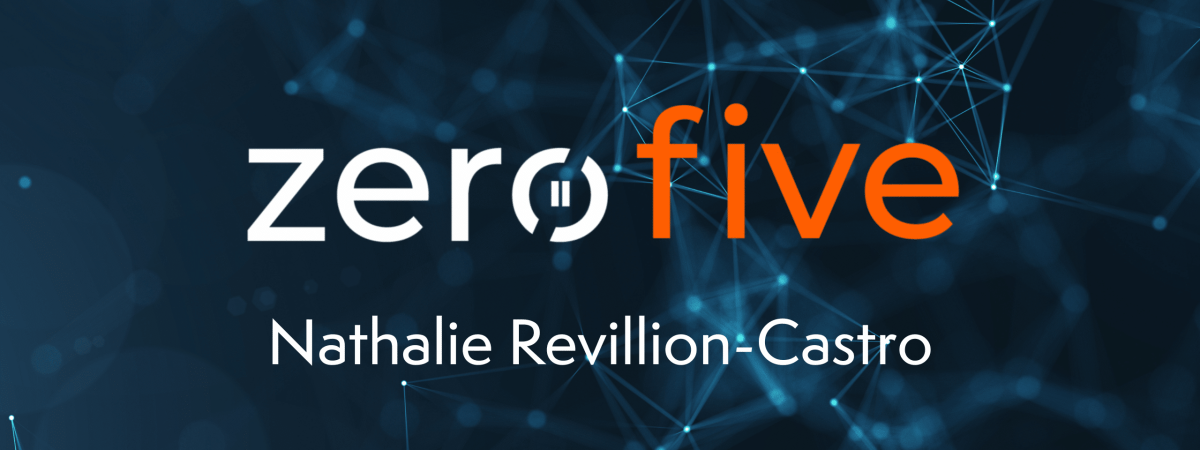Is standardisation the key to ETD reconciliations?
94% of buyside firms say a lack of data standardisation causes huge complexity across the entire post-trade process and is a major challenge to most firms.

The full interview can be viewed here and below is a transcript of the interview.
Reece Chapman: Hello and welcome to another episode of ZeroFive. Today, our special guest is Nathalie Revillion-Castro who is Chief Operating Officer of Clearing Operations at R.J.O’Brien. Thank you for joining us today Nathalie, if you’d like to just take a quick moment to introduce who you are and your background in the financial sector.
Nathalie Revillion-Castro: I joined R.J.O’Brien in February 2020 and I’ve been in the futures and options and listed derivatives industry for the last 15 years.
Reece Chapman: Jumping straight in, what do you think is driving change in post-trade processing today?
Nathalie Revillion-Castro: Financial markets have historically invested in innovation in the front office. There’s not been the same focus on post-trade process, which can still be manual, complex and duplicative. So in addition, I think regulatory pressures are that the focus of reducing settlement failure, compressing settlement time, as well as the need to be prepared for the growing adoption of digital assets and changes in market structure have enforced the requirement of moving away from legacy technology. So I would say the main driver being operational resilience.
Reece Chapman: Do you foresee any specific type or types of technology having the biggest impact on the post-trade space?
Nathalie Revillion-Castro: Digitalization is not a new phenomenon in the capital market. I’ve now been looking to streamline operation and remove manual processes and the potential for human error for many years. However, there remains much work to be done, especially on the buy-side and among smaller firms where spreadsheets remain widely used and data sharing between counterparties can range from high speed fixed connectivity to email PDF. So I think the cloud based service that has become essential in the piece of that digital transformation. I would say in terms of going back to the different type of technology, that may make a big difference in post-trade where they are the robotic process automation, RPA, in conjunction with Artificial Intelligence and machine learning. So its now increasingly being used to assist with pattern recognition and decision making, especially in the area of reconciliation. A relatively new development in that many applications open also to the API to enable integration between different platforms. So that’s also another means that could make a difference.
Reece Chapman: Moving along to a subject which I’m sure you’ve had many discussions about, that being A.I, what affect are you anticipating it to have?
Nathalie Revillion-Castro: Artificial Intelligence can help firms generate insight to drive efficiency. So automate risk management and compliance across post-trade processes and create value. I think that the post-trade processing has seen frequent changes across asset classes and the regulatory landscape as well. These changes coupled with a human-driven decision across processes introduces inefficiency and leads to error. I think in artificial intelligence can play an important role in reducing those inefficiencies by easing decision through automated self-learning, but also allow firms to gain a competitive edge while addressing those challenges.
Reece Chapman: Stepping back and taking a more speculative view, what do you still see as the major challenges that will need to be overcome?
Nathalie Revillion-Castro: I will say first data mining, the right dataset. It can be hard to determine what data to use for post trade as well, but because different types of data will be flowing across the organization. If you want to improve the decision making and learning process of A.I, I think it’s important to identify the use of the right data. I would say secondly, that data, security and storage, most A.I applications make use of significant amounts of data for learning and making intelligent decisions. So the drawback of that is it does utilize large volumes of data and that may create a storage issue for businesses. Moreover, data driven automation in business operation may result in issues related to data security. I would say also the infrastructure, old infrastructure with traditional legacy systems will continue to be a major challenge for most organizations. Most A.I based solutions have a high level of computational speed, so we need to make sure that the firms do have a solid infrastructure to accommodate that kind of business.
Reece Chapman: What do you forecast the impact of digital asset classes being?
Nathalie Revillion-Castro: The development of digital asset currency could alter the way we look to exchange value. With benefits, including reducing settlement time and risk as well as increasing liquidity for all of the asset classes. We’ve seen lately, a lot of prominent financial services institutions adopting already the blockchain to enable their infrastructure to support a variety of digital assets. But there’s only 21% of banks involved with blockchain technology and digital assets adoption on the rise. This is a primetime for organization to redesign their infrastructure, to take advantage of the market.
Reece Chapman: Thank you for joining us today Nathalie and we will see you again soon.
94% of buyside firms say a lack of data standardisation causes huge complexity across the entire post-trade process and is a major challenge to most firms.
In the face of huge increases in transaction volumes and regulatory expectations since the 2008 financial crisis, reconciliations have emerged as the keystone in post-trade processing.